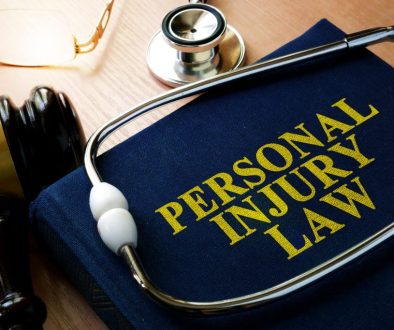How Workers’ Compensation Works in California
If you’ve been injured on the job in California, you may be wondering how workers’ compensation works and what steps you need to take to protect your rights. Workers’ compensation is a state-mandated insurance program that provides benefits to employees who suffer work-related injuries or illnesses. Understanding how this system works can help you navigate the process and ensure you receive the benefits you’re entitled to.
1. What Is Workers’ Compensation?
Workers’ compensation is a type of insurance that employers in California are required to carry to cover employees who get injured or become ill as a result of their job. This insurance provides medical benefits, wage replacement, and other forms of compensation to help employees recover and return to work. It’s important to note that workers’ compensation is a no-fault system, meaning that employees are entitled to benefits regardless of who was at fault for the injury.
2. Who Is Eligible?
In California, most employees are covered by workers’ compensation, including full-time, part-time, and temporary workers. However, there are a few exceptions, such as independent contractors, certain volunteers, and domestic workers employed by a family member. If you’re unsure whether you’re covered, it’s a good idea to consult with an attorney or your employer’s human resources department.
3. What Benefits Are Available?
The benefits you may be entitled to under California’s workers’ compensation system include:
- Medical Care: This covers the cost of medical treatment needed to treat your work-related injury or illness, including doctor visits, hospital stays, surgery, medication, and physical therapy.
- Temporary Disability Benefits: If your injury or illness prevents you from working temporarily, you may receive temporary disability benefits, which are typically two-thirds of your average weekly wage, up to a maximum amount set by law.
- Permanent Disability Benefits: If your injury or illness results in a permanent impairment, you may be entitled to permanent disability benefits. The amount is based on the severity of your disability and other factors.
- Supplemental Job Displacement Benefits: If you are unable to return to your previous job due to your injury or illness, you may receive a voucher to help pay for retraining or skill enhancement for a new job.
- Death Benefits: If an employee dies as a result of a work-related injury or illness, their dependents may receive death benefits, including funeral expenses and ongoing support payments.
4. How to File a Workers’ Compensation Claim
Filing a workers’ compensation claim in California involves several steps:
- Report the Injury: As soon as possible after the injury occurs, notify your employer. Failing to report the injury within 30 days could jeopardize your ability to receive benefits.
- Seek Medical Treatment: Get the necessary medical treatment for your injury. If it’s an emergency, go to the nearest hospital or clinic. For non-emergencies, your employer may require you to see a specific doctor within their network.
- Complete a Claim Form: Your employer should provide you with a Workers’ Compensation Claim Form (DWC-1). Fill out the “Employee” section and return it to your employer, who will complete the “Employer” section and file it with their insurance company.
- Receive a Response: The insurance company will review your claim and decide whether to approve or deny it. If approved, you should begin receiving benefits; if denied, you have the right to appeal.
5. What If Your Claim Is Denied?
If your workers’ compensation claim is denied, you have the right to dispute the decision. The first step is to file an Application for Adjudication of Claim with the Workers’ Compensation Appeals Board (WCAB). You may also need to attend a hearing where you can present evidence to support your claim. It’s highly recommended to consult with a workers’ compensation attorney if your claim is denied, as they can guide you through the appeals process and help you achieve the best possible outcome.
6. Why You Might Need a Workers’ Compensation Attorney
While the workers’ compensation system is designed to be accessible, it can still be complex and challenging to navigate, especially if your claim is disputed or denied. An experienced workers’ compensation attorney can help you:
- Understand your rights and the benefits you’re entitled to.
- Ensure all paperwork is completed correctly and filed on time.
- Represent you in disputes with the insurance company or your employer.
- Maximize your benefits and protect your future.
Workers’ compensation is a vital safety net for employees who are injured or become ill due to their job. By understanding how the system works in California, you can better protect your rights and ensure you receive the benefits you deserve. If you’re facing challenges with your workers’ compensation claim, don’t hesitate to seek legal assistance. A knowledgeable attorney can make a significant difference in the outcome of your case.
Need legal help? In California, navigating legal challenges, whether they involve personal injury, workers’ compensation, criminal defense or civil litigation, can be overwhelming. Expert Attorney Help is here to provide the critical legal support you need. As a leading advocate for individuals facing legal battles, our experienced attorneys understand the complexities of the legal system and are committed to fighting for your best interests. With personalized legal strategies and compassionate support, we are dedicated to achieving the justice and compensation you deserve.
CONTACT US FOR HELP. Call us at (888) 354-6879 or fill out the form on our Contact page.




